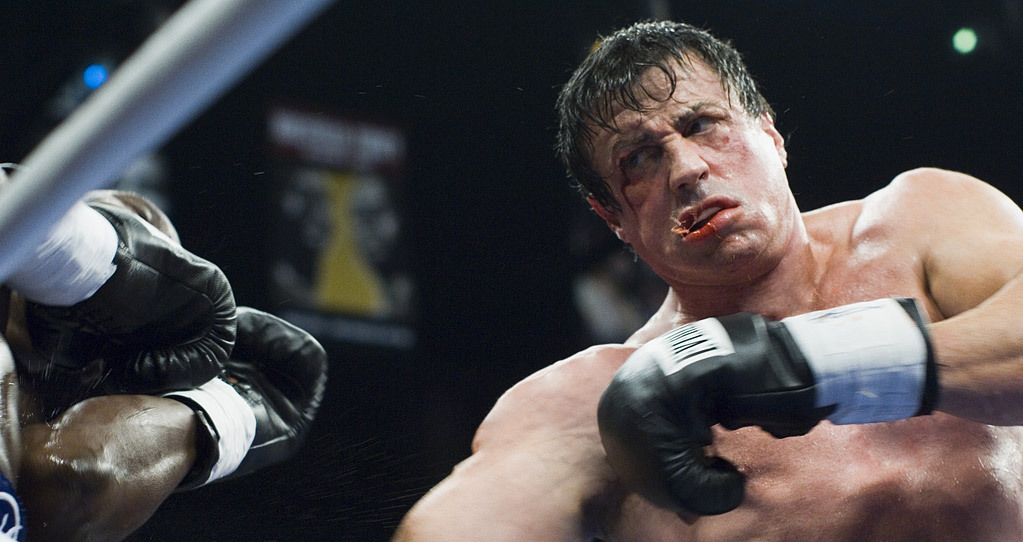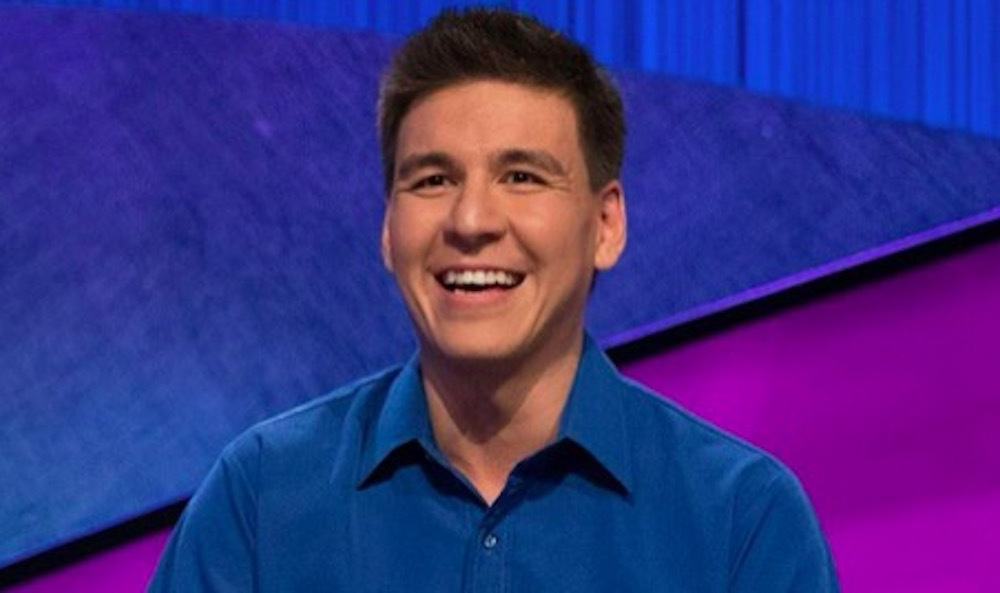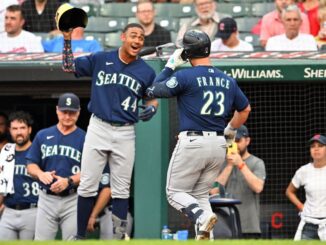
Well, here we are. The Seattle Mariners are approaching 40 games in 2019 and they’re just barely floating around .500 on the season. But it’s worse than it looks, because at one point the Marines were 13-2, which mathematically inclined folks will correctly conclude means that they’ve taken a monster dive over the last few weeks.
Don’t get me wrong—expectations were logically quite low heading into a rebuilding season and a .500 ballclub was about the best we could ask for. But the shift from winning to losing has been rough, and my oh my does losing hurt sometimes.
Like the other night when our rookie/not rookie pitcher, Yusei Kikuchi, threw a gem against the Cleveland Indians only to have the bullpen collapse and give up the game. That felt like a quick jab to the ribs.
Or when the Texas Rangers came to T-Mobile Park and after the Mariners properly whooped them two nights in a row; they came back hard the last two games, out-scoring us 29-2 and splitting the series. Adding insult to injury, we lost the next 4 games (2 to the Chicago Cubs and 2 to the Indians). That felt like a sweeping hook to the jaw.
Now, I grew up in a Rocky household where we worshiped the Italian Stallion among other cinematic heroes, like Han Solo and Indiana Jones. After Rocky’s famous franchise fell from glory, concluding with 1990s Rocky V seemingly putting us all collectively down for the count, there was a moment in 2006 when a new chapter called Rocky Balboa hit theaters. There wasn’t much of an appetite from audiences for a 6th film, but those of us who summoned the strength to get off the mat once more were rewarded with a great movie.
For me, it’s the third-best film in the franchise behind only Rocky and Creed. If you haven’t seen it, I highly recommend you seek it out because there’s a moment in the movie that applies to our living tragedy, the 2019 Seattle Mariners.
Rocky, for all its training montages and Eye-of-the-Tiger-isms, was about losing. In the original, Rocky gets the shot of a lifetime to fight the Champ but only dreams of losing by decision because he “went the distance” and didn’t get knocked out. The subsequent films pivoted thematically to being about winning where Rocky would overcome increasingly insane odds to beat his opponents in the final rounds of the fight.
Until Rocky Balboa returned to losing form.
The story of Rocky Balboa finds an aging Rocky struggling to find inner peace after Adrian has died and his insecure son has distanced himself from the largest living legend in Philadelphia. As you might expect, an opportunity to climb back into the ring arrives at Rocky’s doorstep and he’s inspired to find out how much gas is left in the tank. As the movie unfolds, Rocky’s son struggles with his father’s enormous shadow and fears that this new fight will only worsen his own inferiority complex. But he’s also scared, both for himself and for his dad. Rocky’s opponent is a terrific fighter and the elderly Rocky could be seriously hurt or killed trying to go one more round. But Rocky doesn’t need to win, he only needs to stand up and go the distance—for himself.
In the film’s best moment, between a father and son, Rocky summarizes his life’s meaning, and it’s beautifully simple.
“Let me tell you something you already know. The world ain’t all sunshine and rainbows. It’s a very mean and nasty place and I don’t care how tough you are, it will beat you to your knees and keep you there permanently if you let it. You, me, or nobody is gonna hit as hard as life. But it ain’t about how hard ya hit. It’s about how hard you can get hit and keep moving forward. How much you can take and keep moving forward. That’s how winning is done.” ― Rocky Balboa
To me, this isn’t about winning. I mean, admittedly, it’s somewhat about winning, but it isn’t only about winning. Because it’s mostly about losing and how life will push you, challenge you, and often test the personal limits of what you can take. And according to Rocky, it’s not about how high you can go, but what you do when you’re at your lowest. How much losing can you endure? What’s the breaking point where you give up?
Beyond the movie, that message is for us. It’s a call to our better selves, challenging us to take life’s hits and keep moving forward. Or, to bring it back to the Mariners, take baseball’s losses and keep moving forward.
Losing sucks. There are literally zero players, coaches, front office staff, or fans who enjoy losing ball games. The MLB doesn’t even have a worthwhile tank-strategy draft system (thanks, prospects!) where you can rally behind your team losing to get a high draft pick. For the Mariners, however, winning isn’t the point—not yet anyway.
The very nature of the Mariners’ rebuild includes conceding a lot of games. Sure, they got off to an incredibly hot start, but the standings are finding their balance and we should expect a mixed bag for the rest of the season. We’ll have a few hot weeks or standout moments and (hopefully) an equal number of crap-filled slumps and disasters. And that’s okay. In fact, that’s the plan.
In order to build a playoff-caliber, division-contending, top-of-the-projections ballclub, we need a few years of losing. Flipping hot vets for unknown youngsters, developing young arms and getting them major league reps, finding out which prospects have a long-term role to play and who doesn’t—some teams choose to buy their way into the playoffs, but not the Mariners. Like the Houston Astros of a few years ago, we’re going to earn it the right way.
We’re not winners right now, we’re losers; but as Rocky said, that’s how winning is done. Learning how to lose and finding out who you are when you are at your lowest, then and only then, learning how to win again and again.
It’s the price of admission to baseball’s postseason and every game lost now is a downpayment on a win in the future.




